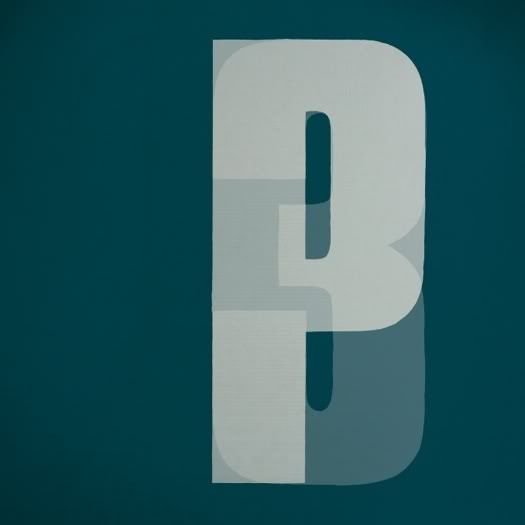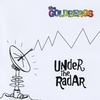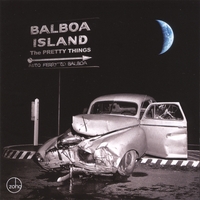
Sparks --
Exotic Creatures Of The Deep (Lil’ Beethoven)On 2006's excellent
Hello Young Lovers, Sparks built on the use of stacked choral vocals, classical music motifs and repetition that made 2002's
Lil’ Beethoven such a groundbreaking release. Two tracks, in particular, took the concept perhaps as far as it could be taken.
Lead single “Dick Around” invoked so many different tempos and utilized dynamics superbly. Ron and Russell Mael had said that they wanted to break free from the predictability of modern pop music, and boy did they ever with that song. Meanwhile, the album closer, “As I Sit Down to Play My Organ at the Notre Dame Cathedral” was an entire musical in seven minutes, with a number of distinct musical ideas, perfectly blended to a thrilling conclusion.
Exotic Creatures Of The Deep continues in the style of its two predecessors. But instead of trying to push the envelope further, the Maels now act like what they are playing is conventional pop. I don’t know if Sparks has ever had so much direct songwriting on one album; at least, not since
Big Beat in 1976. Whatever opulent trappings fill these tracks, these songs are focused on simple ideas and big hooks.
Songs don’t get much simpler than “I Can’t Believe That You Would Fall For All The Crap In This Song”. Well, the title isn’t simple, but the track itself is. It’s grounded on an oscillating synth line and steady beat (akin to Depeche Mode’s “Personal Jesus”). Russell mouths generic love platitudes (like “I want you” and “I need you” -- y’know, the basics), and then a chorus of Russells intones the title in a sing-song melodic fashion. The only thing that keeps this from being wholly primitive are the bits of pretty piano from Ron Mael. The Maels clearly dig the contrast between modern sounds and classical styled piano. Rightly so, as it sounds great.
This contrast is just part of what makes “Strange Animal” such a winning effort. It’s a song that takes a little while to fully grasp. It starts off with Russell in jaunty mode, the melody and singing sounding like something from a classic ‘40s vocal group. This eventually runs smack dab into Dean Menta’s metallic guitar and quicker tempos, while maintaining the main melody line. There’s a real cool interlude with Menta’s jagged riffing alongside Ron’s stately keyboard work.
This song is one of two that are cut more from the complex cloth of the past two Sparks albums. The lyrics are odd, even by Sparks’ standards. A guy on the lam (“with blood on his hands”) takes up residence inside a song. At times, Ron’s words are a bit awkward because Russell has to sing from both the viewpoint of the man and the others living in the song. Eventually, the bad guy asserts himself. Let’s just say that this track proves that everybody’s a critic.
The other song that is more in line with the past albums is “Likeable”, a song the Maels liked so much they threaded a couple bits of it earlier in the album. It’s a swell set closer with a classic Sparks concept -- a guy who everyone likes to be around, but has never been loved by anyone. This is a song that is chock full of ideas. Movements really, threaded together expertly. Here, the harmony vocal arrangements by Russell are simply brilliant. This is true throughout the album.
For example, “The Director Never Yelled ‘Cut’” has some vocal breaks where Russell sounds like he was touched by the wisdom of Brian Wilson. It’s lovely. I also love the pomp pop tuneage and the demented lyric, that, if I’m interpreting it correctly, is about a guy who’s new lover demands that he bring her to orgasm: “She could not articulate exactly what she wanted/what she wanted was a feeling that I tried so hard to find.” This is a companion to the 1979
Number One In Heaven track “La Dolce Vita”, which deals with role playing and faking orgasm. Those darned Maels!
The characteristic Ron Mael wit is in greater supply on this less rigidly conceptual album. My favorite lyric might be “Music’s gone wild/no Gregorian here/Contrapuntal music is the music that your parent’s fear” from “This Is the Renaissance”. But I also crack up after Russell ruminates tenderly about the “lurid” things he hasn’t done in his life before another multi-Russell chorus shouts out the title: “I’ve never been high”. Or the whole concept of “Lighten Up, Morrissey”, where the protagonist can’t get anywhere with his girl because he can’t live up to the high standards set by Moz: “”She won’t hang out with me, no, she won’t hang out/‘til my biting wit bites like his.”
And the ability to come up with a sterling single is still there too. “Good Morning” has a bouncy synthesizer line, with Ron coloring in the gaps on piano, and Russell, showing off his still youthful falsetto, tells the story of a guy who had a one night stand and can’t believe the babe with whom he just woke up. The song has it all, from the verse where Russell starts saying “good morning” in other languages because he doesn’t know where this strange beauty came from, to the sublime middle eights where he thanks God for taking some time for him, and the wise observation that “I hope it’s just your laugh that is infectious.”
One can’t help but marvel that Sparks, 37 years removed from its first album, has put out some of its best work in the past six years. At one level, I grade this album a notch below
Lil’ Beethoven and
Hello Young Lovers, because it’s not nearly as audacious. But at another level, this is so much more fun. Moreover, it’s quintessentially Sparks. That’s about as high a compliment as I can give.
 Sloan -- Parallel Play (Yep Roc/Murder)
Sloan -- Parallel Play (Yep Roc/Murder)




















